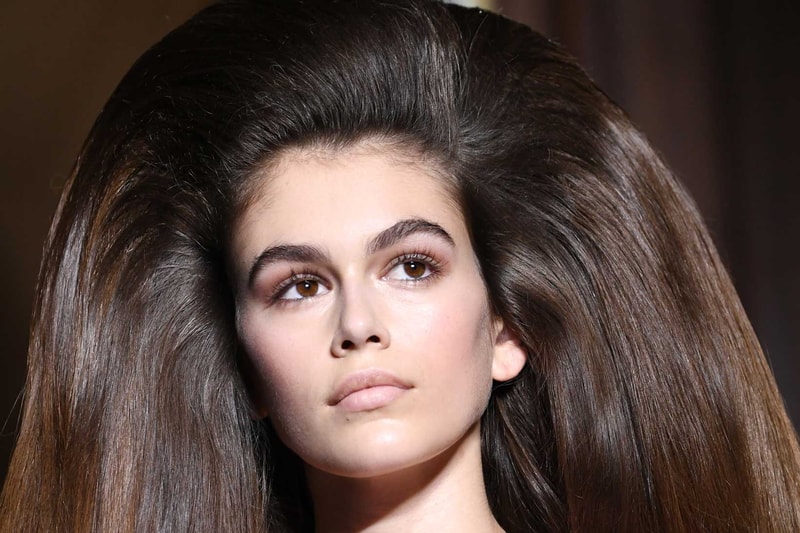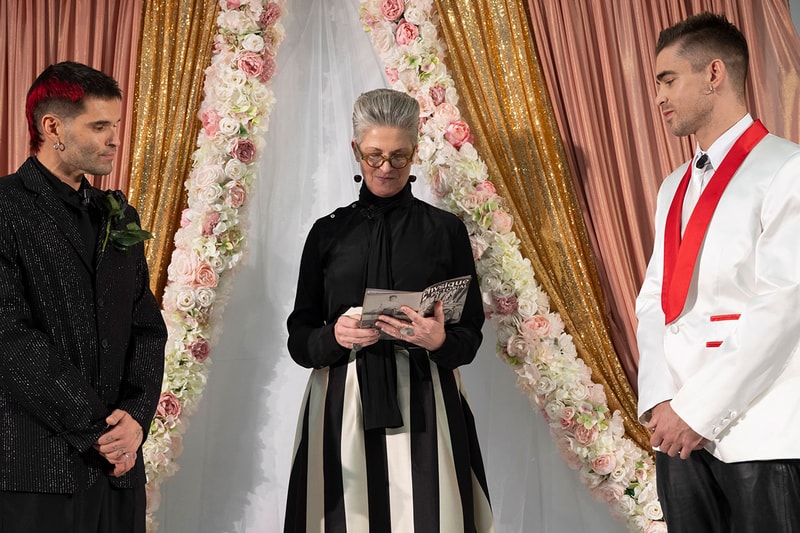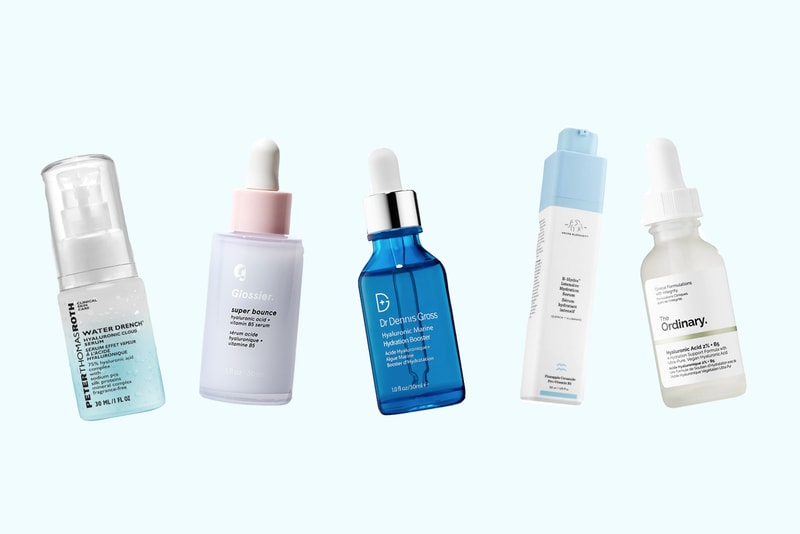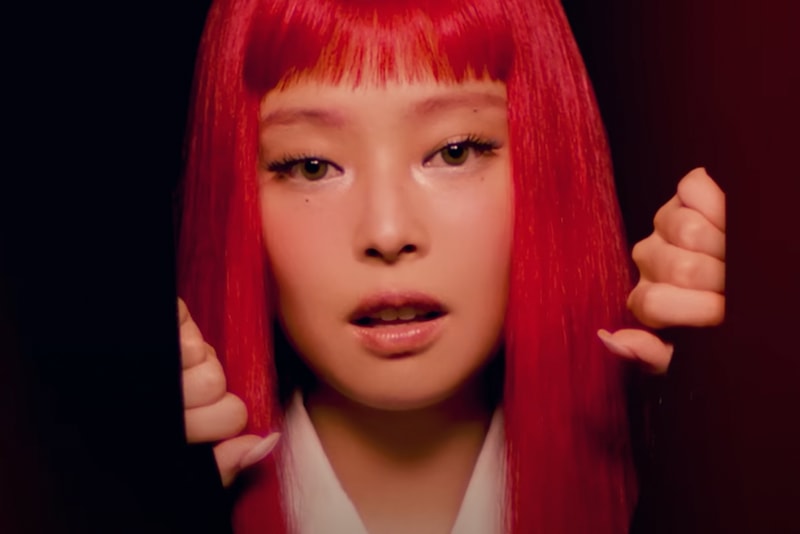Do Hair Growth Serums Work? Experts Explain How To Get Thicker, Healthier Locks
info@hypebae.com (HYPEBAE) Fri, 30 Apr 2021 HYPEBAE
In pursuit of luscious locks fit for a shampoo commercial, many consumers turn to products that purport to speed up hair growth and thicken strands. There are myriad serums and washes on the market that claim to result in thicker, longer hair -- or at least the appearance of it. The Ordinary's Multi-Peptide Serum for Hair Density helps strands look fuller and healthier, while Hers sells a topical treatment that "reactivates hair follicles to stimulate regrowth." Vegamour's GRO Hair Serum, heavily marketed on Instagram, "support[s] the appearance of longer, denser, thicker, healthier hair."
These products seem appealing, especially to customers who suffer from hair loss and hair thinning. According to the American Academy of Dermatology, 40 percent of women have visible hair loss by the time they're 40-years-old. Bald spots and thinning can take a devastating emotional toll -- for women, particularly, hair plays an important role in expressing identity and sexuality.
To better understand hair loss, hair thinning and ways to treat them, HYPEBAE spoke to several experts about what works -- and what doesn't work -- when pursuing a fuller head.
WTF is hair, anyway?
Strands of hair are essentially chains of proteins that continuously grow from live follicles in the scalp, face and body. "Once hair emerges from the [follicle] the cells are dead and unresponsive, so whatever damage our hair endures is permanent until we cut it off," says Eleanore Richardson, a trichologist at the Fulham Scalp & Hair Clinic.
There are two types of hair: terminal hair and vellus hair. "Terminal hair is thick and includes the hair on your head, eyebrows, eyelashes, facial hair and pubic hair," trichologist Kate Holden explains. "Vellus hair is much finer and is often called ‘peach fuzz’ because of its light and downy appearance."
The quality of your hair (i.e. whether it's thick or fine), as well as the speed of its growth are primarily determined by genetics. However, your hair growth cycle can be impacted by external factors such as illness and stress.
Hair loss and thinning can be triggered by several culprits
Hair loss is typically hereditary, but manageable factors are sometimes the culprit. Richardson explains that triggers for hair loss and thinning include hormonal changes due to pregnancy or menopause, vitamin or mineral deficiencies (which commonly occur after going on a crash diet or switching to a meat-free diet without proper research) and illness (especially if you had a fever or infection). Holden adds that bleaching your hair, damaging it with heat and wearing tight hairstyles can also affect the health of your locks.
Stress can also influence hair health. "This includes emotional, psychological and physical stress on the body and mind," Richardson clarifies. According to dermatologist Antonella Tosti, the stress of the pandemic has become a common cause for hair loss nowadays.
Hair growth serums and shampoos will not speed up hair growth
No matter how promising a product's before-and-after photos look, no ingredient or combination of ingredients can speed up hair growth. Brands won't explicitly say their products increase the rate of hair growth, but their marketing tactics -- such as tricky wording and photo testimonials -- certainly create that illusion, making them attractive options to customers desperate for a solution.
There is one medically approved topical treatment to treat hair loss: minoxidil, AKA Rogaine. However, Holden notes that minoxidil is only used to treat certain types of hair loss and isn’t effective for everyone.
Instead, the majority of minoxidil-free "hair growth" products support scalp health. "Inflammatory scalp conditions cause hair loss," Dr. Tosti says, adding that growth of healthy hair requires a healthy scalp. Skin conditions affecting the scalp, such as seborrheic dermatitis and psoriasis, can also curb hair growth in extreme cases due to excessive itching.
Holden's advice for maintaining a grade-A scalp is simple: "Washing your hair regularly is the most important factor in removing build-up on the scalp and maintaining scalp health," she attests. Dr. Tosti also recommends using conditioners and protective hair masks (she endorses Monat's Rejuveniqe line) to prevent damage to your strands. If you notice flakiness, itchiness or pain affecting your scalp, see a trichologist or a dermatologist for advice.
In haircare no-no's, both Holden and Richardson warn that any oil, no matter how natural or organic it may be, can cause irritation and weigh down hair when applied directly to the scalp. Richardson also cautions against massaging any type of product into the scalp, particularly in areas with fragile or thinning hair, as these movements can mechanically break and weaken your strands.
However, certain ingredients can add temporary thickness to hair
There's no magic bullet for faster-growing hair, but there are ingredients that can cause the appearance of thicker tresses. Some shampoos and serums (such as Elon's Thinning Hair Serum) add a coating to the hair shaft, resulting in temporarily thicker-looking hair. Ingredients commonly used in these products are panthenol, rice protein and wheat protein.
For healthier hair, take a holistic approach
When it comes to caring for your hair, look beyond specific products and take your overall health into consideration. "Your hair is your body's last priority when it spends energy," Richardson states. "If your body is struggling in any way it will prioritize that area of need rather than spend [energy] on hair growth, so make sure you yourself are as healthy as can be."
Make sure you're fulfilling all your nutritional needs via nourishing and varied foods, and manage your stress levels by getting enough sleep, practicing mindfulness and setting aside time for self-care (of course, it's important to consult with a professional if you feel totally overwhelmed). Lastly, take a practical approach to your hair care: avoid applying too much heat with straighteners and dryers, and don't leave tight styles on for too long.







